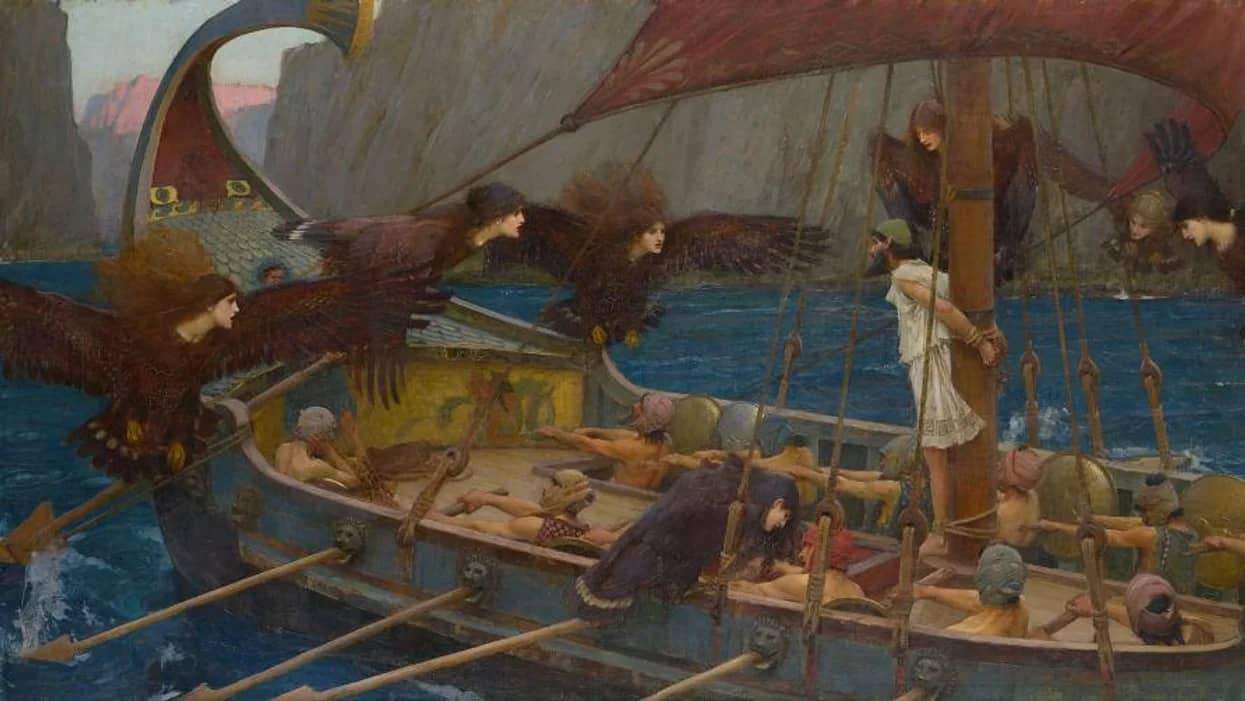Report: Massachusetts school bans 'The Odyssey' as progressives demand purge of classics

A Massachusetts school has reportedly removed "The Odyssey" from its English curriculum as progressive education activists and critical race theory ideologues seek to "disrupt texts" by purging material they deem objectionable from classrooms.
Meghan Cox Gurdon, in an opinion column for the Wall Street Journal, wrote about a "sustained effort" by "critical-theory ideologues, schoolteachers and Twitter agitators" to "deny children access to literature." These activists object to classic texts, such as Homer's Odyssey or Nathaniel Hawthorne's "The Scarlet Letter," because they allege such texts may teach "racism, sexism, ableism, anti-Semitism, and other forms of hate."
"The subtle complexities of literature are being reduced to the crude clanking of 'intersectional' power struggles," Gurdon wrote.
She quoted from an article by young-adult novelist Padma Venkatraman published in the School Library Journal, that claims "challenging old classics is the literary equivalent of replacing statues of racist figures."
"[E]xposing young people to stories in which racism, sexism, ableism, anti-Semitism, and other forms of hate are the norm may sow seeds of bias that can grow into indifference or prejudice," Venkatraman wrote.
"Racism in classics can't be negated merely by alerting young readers to its presence," she continued. "Unless we have the time, energy, attention, expertise, and ability to foster nuanced conversations in which even the shyest readers feel empowered to engage if they choose, we may hurt, not help. Pressuring readers of color to speak up also removes free choice and can be harmful."She further claimed, "Insisting on exposing diverse children to racist classics in which they see characters like themselves demeaned, or, at best, entirely excluded, is not just insensitive, but downright cruel," but she does not advocate banning classic texts from the classroom.
"I'm not advocating we ban classics. Or erase the past. Classics are undoubtedly examples of excellent writing, or they wouldn't have survived the test of time. I'm just suggesting we study classics in social studies classrooms, where inherent ideas of inequity are exposed and examined," Venkatraman clarifies.
However, Gurdon's column provided examples of other activists that indeed want to outright ban classics.
Ninth-grade English teacher Heather Levine, who works for Lawrence Public Schools in Massachusetts, celebrated the fact that "The Odyssey" was removed from the school curriculum in response to a tweet calling the epic poem about the Greek mythological hero Odysseus "trash."
@sheathescholar @DisruptTexts Hahaha - very proud to say we got the Odyssey removed from the curriculum this year!— Heather Levine (@Heather Levine)1591284349.0Gurdon contacted Levine to confirm that the school banned the Odyssey, but was told her inquiry was "invasive." The English Department chairman of Lawrence Public Schools did not return Gurdon's multiple requests for comment.
Seattle English teacher Evin Shinn in 2018 tweeted that he'd "rather die" than teach "The Scarlet Letter" in class.
@tsuejohnson @triciaebarvia I don’t mind saying it: I’d rather die than teach Scarlet Letter. Unless you are teachi… https://t.co/XVEyoU5qVy— Evin Shinn (@Evin Shinn)1529733548.0
This article was originally published at The Blaze











